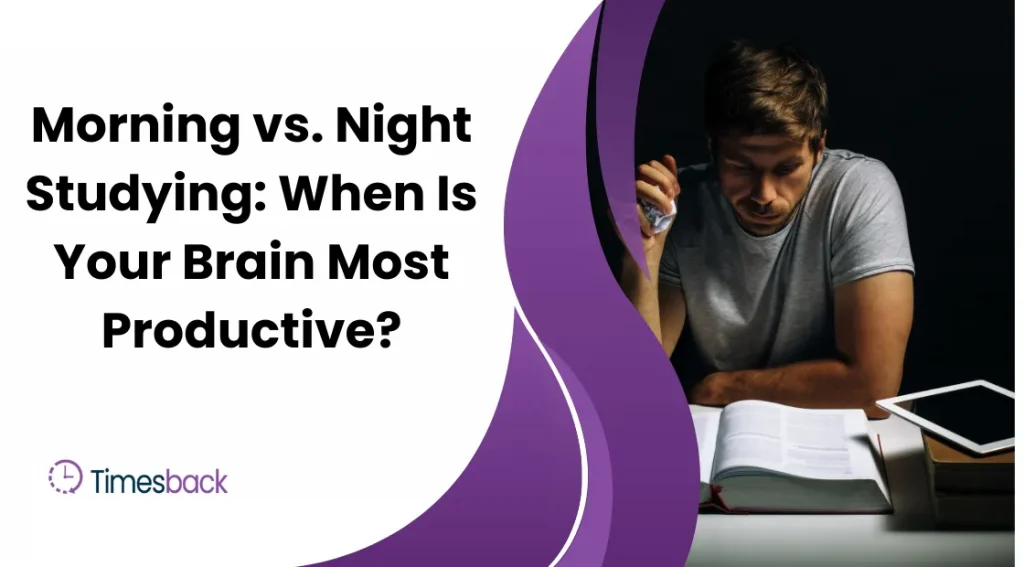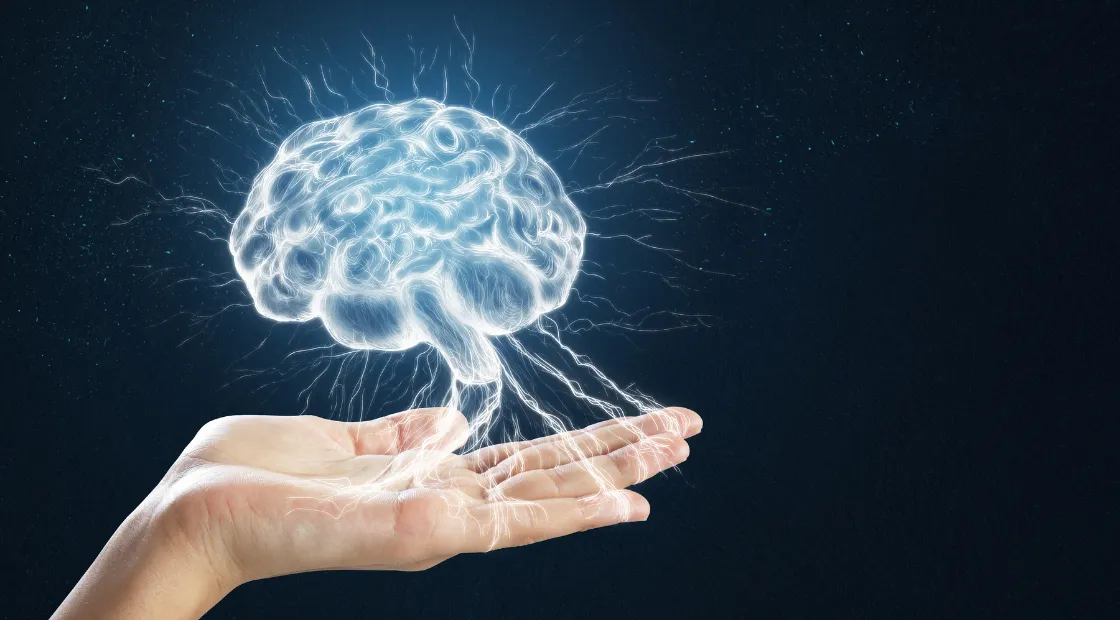Morning vs. Night Studying: When Is Your Brain Most Productive?

The debate between morning vs. night studying is as old as education itself.
Anúncios
Some swear by the crisp focus of dawn, while others thrive under the quiet intensity of midnight.
But when does your brain truly perform at its peak?
The answer isn’t universal—it hinges on chronotypes, cognitive rhythms, and even lifestyle factors.
Anúncios
This article dives into the science behind productivity, comparing the advantages and drawbacks of studying at different times.
We’ll explore how circadian rhythms influence learning, why some people absorb more information at night, and whether early birds genuinely have an edge.
Understanding your own productivity patterns can lead to more effective study habits.
Recognizing when you are most alert and focused allows you to maximize your learning potential.
By tailoring your study schedule to your natural rhythms, you can achieve better retention and understanding of the material.
Moreover, studying at the right time can also reduce stress and anxiety associated with cramming or last-minute preparation.
Finding your optimal study time can transform your educational experience, making it not only more productive but also more enjoyable.
The Science of Peak Productivity: It’s All About Chronotypes
Not everyone operates on the same internal clock.
Research from the University of Birmingham found that early risers and night owls have significantly different cognitive performance patterns.
Morning people tend to excel in memory retention and analytical tasks before noon, whereas night owls hit their stride in creativity and problem-solving after sunset.
Key Factors That Influence Study Efficiency:
- Circadian Rhythm: Your body’s natural sleep-wake cycle dictates energy highs and lows.
- Hormonal Fluctuations: Cortisol (alertness) peaks in the morning, while melatonin (sleepiness) rises at night.
- Environmental Distractions: Daytime noise vs. nighttime silence can make or break concentration.
Understanding these factors can help you create a study environment that complements your natural tendencies.
For instance, if you’re a morning person, consider studying in a well-lit area to enhance alertness.
Conversely, night owls might benefit from dim lighting to signal the brain that it’s time to focus.
Additionally, the impact of lifestyle choices cannot be overlooked.
Diet, exercise, and sleep quality all play crucial roles in determining your overall energy levels and cognitive function throughout the day.
By cultivating healthy habits, you can optimize your productivity, regardless of whether you prefer studying in the morning or at night.
+ Saving for a Home: Tips to Reach Your Down Payment Goal Faster
The Case for Morning Studying
1. Enhanced Memory Consolidation
A study published in Nature Communications revealed that information learned in the morning is better retained long-term.
The prefrontal cortex—responsible for decision-making and focus—is most active after sleep, making mornings ideal for absorbing complex material.
2. Fewer Distractions
Before emails, social media, and daily obligations pile up, the early hours offer uninterrupted focus.
For students juggling work and classes, this window can be golden.
3. Alignment with Standard Schedules
Most exams and work meetings occur before noon.
Training your brain to perform optimally in the morning can pay off when it matters most.
Best For:
- Memorization-heavy subjects (history, biology)
- Structured learners who thrive on routine
Additionally, the morning hours often provide a sense of accomplishment that can motivate you throughout the day.
Starting the day with productive study sessions can set a positive tone for subsequent tasks.
Moreover, the quiet of the morning can foster a peaceful mindset, allowing for deeper concentration.
Research also indicates that morning study sessions can lead to better mental health outcomes.
Engaging in productive activities early in the day can boost your mood and increase feelings of well-being, setting a positive trajectory for the rest of your day.

The Night Owl Advantage
1. Creativity Surges After Dark
A 2019 study in Thinking & Reasoning found that divergent thinking—essential for essays and brainstorming—peaks at night.
With fewer external demands, the brain explores ideas more freely.
2. Reduced Stress for Procrastinators
For those who cram, nighttime’s urgency can heighten focus.
The pressure of a deadline triggers adrenaline, sharpening attention.
3. Quiet Solitude
Night offers silence—no roommates, traffic, or notifications.
Deep work becomes easier without daytime’s constant interruptions.
Best For:
- Creative tasks (writing, design)
- Night owls who feel sluggish in early hours
The night can also provide a unique atmosphere conducive to inspiration and deep thinking.
Many artists and writers have historically found their muse in the stillness of the night.
Furthermore, nighttime studying can allow for a more relaxed pace, reducing the anxiety often felt during the busy daytime hours.
Night owls may also find that their unique perspective allows them to approach problems from different angles, leading to innovative solutions.
This ability to think outside the box can be especially beneficial in fields that require creativity and original thought.
++ The Best Ways to Reduce Monthly Expenses Without Sacrificing Comfort
Comparative Analysis: Morning vs. Night Studying
| Factor | Morning Studying | Night Studying |
|---|---|---|
| Focus Level | High (fresh mind) | High (fewer distractions) |
| Memory Retention | Stronger (research-backed) | Weaker (sleep deprivation risk) |
| Creativity | Moderate | Peak (night owls excel) |
| Energy Source | Natural cortisol boost | Adrenaline from deadlines |
This table highlights the strengths and weaknesses of each approach, providing a clear comparison.
Understanding these differences can help you make informed decisions about your study habits.
Ultimately, the choice between morning and night studying depends on your personal preferences and lifestyle.
Consider also that individual circumstances, such as work commitments or family responsibilities, may dictate your study schedule.
Flexibility in adapting your study habits to fit your life can lead to overall better performance and satisfaction in your educational pursuits.

How to Optimize Your Study Schedule
1. Know Your Chronotype
Take the Morningness-Eveningness Questionnaire (MEQ) to identify your natural rhythm.
2. Hybrid Approach
- Use mornings for review and memorization.
- Reserve nights for creative projects and problem-solving.
3. Strategic Breaks
The Pomodoro Technique (25-minute sessions) works regardless of time—adapt it to your peak hours.
Utilizing a hybrid approach allows you to leverage the best of both worlds.
By scheduling different types of study sessions at optimal times, you can enhance both retention and creativity.
Additionally, incorporating breaks can prevent burnout and maintain focus, ensuring a more productive study experience.
Experimenting with different techniques can also help you discover what works best for you.
Keeping a study journal to track your progress and feelings about different study times can provide valuable insights for future planning.
For more insights on optimizing study habits, check out Psychology Today.
Final Verdict: There’s No Universal Answer
The morning vs. night studying battle depends on you.
Early birds harness clarity at sunrise, while night owls unlock innovation after dark.
Instead of forcing an unnatural schedule, align study sessions with your biological strengths.
Experiment, track productivity, and adjust.
Whether you’re a dawn warrior or midnight thinker, the best time to study is when your brain says, “I’m ready.”
This site offers a wealth of articles and research on productivity, learning styles, and cognitive science to help you make the most of your study time.
Finding your optimal study time is not just about productivity; it’s also about fostering a positive relationship with learning.
When you study at times that feel natural to you, it can transform your educational experience into one that is both effective and enjoyable.
